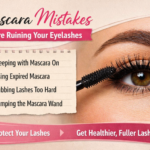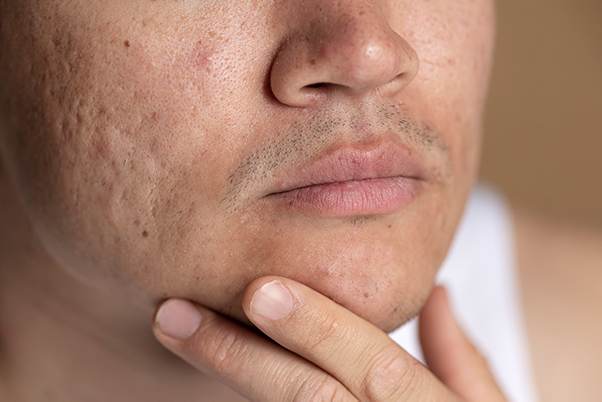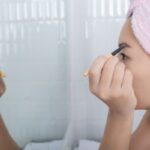Acne is one of the most common skin conditions worldwide, affecting people of all ages. While treatment options are widely available, prevention remains the most effective approach to maintaining clear skin. By understanding acne’s causes and taking proactive steps, you can significantly reduce the likelihood of breakouts.
Below are eight evidence-based tips to help prevent acne before it starts.
1. Maintain Proper Facial Hygiene
Cleansing the skin twice daily removes excess sebum, dirt, sweat, and environmental pollutants that can clog pores and lead to acne. Overwashing or using harsh products can strip the skin’s natural barrier, increasing oil production and irritation.
Recommendations:
- Use a gentle, pH-balanced cleanser formulated for your skin type.
- Wash your face after intense sweating, such as post-exercise.
- Avoid abrasive scrubs, which can damage the skin and exacerbate inflammation.
2. Hydrate with a Non-Comedogenic Moisturizer
Moisturizing is essential for maintaining skin hydration and barrier function. Even oily or acne-prone skin requires hydration. Without it, the skin compensates by producing more oil, increasing the risk of clogged pores.
Recommendations:
- Select a lightweight, oil-free moisturizer labeled “non-comedogenic.”
- Look for hydrating ingredients such as hyaluronic acid or glycerin.
- Apply moisturizer twice daily, after cleansing.
3. Avoid Frequent Face Touching
Hands come into contact with numerous surfaces, accumulating bacteria, dirt, and oils. Touching the face can transfer these substances, increasing the risk of pore blockage and acne formation.
Recommendations:
- Be conscious of avoiding resting your chin or cheeks on your hands.
- Disinfect frequently used objects like smartphones to prevent bacterial transfer.
4. Select Acne-Safe Skincare and Makeup Products
Many cosmetic and skincare products contain oils, waxes, and fragrances that can clog pores or irritate the skin.
Recommendations:
- Choose products labeled “oil-free” or “non-comedogenic.”
- Avoid heavy, occlusive makeup formulations.
- Remove all makeup before bedtime using a gentle cleanser or micellar water.
5. Manage Hair Care to Prevent “Pomade Acne”
Hair products such as conditioners, serums, and styling gels may contain oils or silicones that can contribute to acne, especially along the hairline.
Recommendations:
- Wash hair regularly to reduce oil buildup.
- Keep hair away from the face and neck.
- Avoid letting hair care products come into contact with facial skin.
6. Maintain a Balanced Diet and Adequate Hydration
Emerging research suggests that certain dietary factors can influence acne development. Diets high in high-glycemic-index foods, dairy, and processed items may contribute to increased sebum production and inflammation.
Recommendations:
- Limit consumption of sugary snacks, refined carbohydrates, and excessive dairy.
- Increase intake of fruits, vegetables, whole grains, and lean proteins.
- Drink sufficient water to support healthy skin function.
7. Control Stress Levels
Stress can trigger hormonal changes that increase oil production and inflammation, both of which contribute to acne.
Recommendations:
- Engage in regular physical activity, which can help regulate stress hormones.
- Practice relaxation techniques such as meditation, deep breathing, or yoga.
- Maintain a consistent sleep schedule to support skin repair and regeneration.
8. Incorporate Preventive Acne Treatments
Topical treatments can be used preventively to maintain clear pores and reduce bacterial growth. These should be chosen based on skin tolerance and individual needs.
Recommendations:
- Salicylic acid (BHA): Penetrates pores to dissolve excess oil and exfoliate dead skin cells.
- Benzoyl peroxide: Reduces Cutibacterium acnes bacteria on the skin.
- Topical retinoids: Promote cell turnover and prevent pore blockages.
- Introduce new treatments gradually to minimize irritation, starting with 2–3 applications per week.
When to Seek Professional Advice
If acne persists despite preventive measures, or if painful cystic lesions develop, consult a dermatologist. Professional evaluation can determine if prescription treatments such as oral medications, stronger retinoids, or hormonal therapy are necessary.
The Bottom Line
Preventing acne requires a combination of consistent skincare, healthy lifestyle choices, and targeted preventive measures. By keeping the skin clean, maintaining hydration, avoiding pore-clogging products, managing stress, and using preventive treatments, you can greatly reduce the risk of breakouts.
A proactive approach not only prevents acne but also promotes overall skin health, resulting in a clearer and more resilient complexion.







